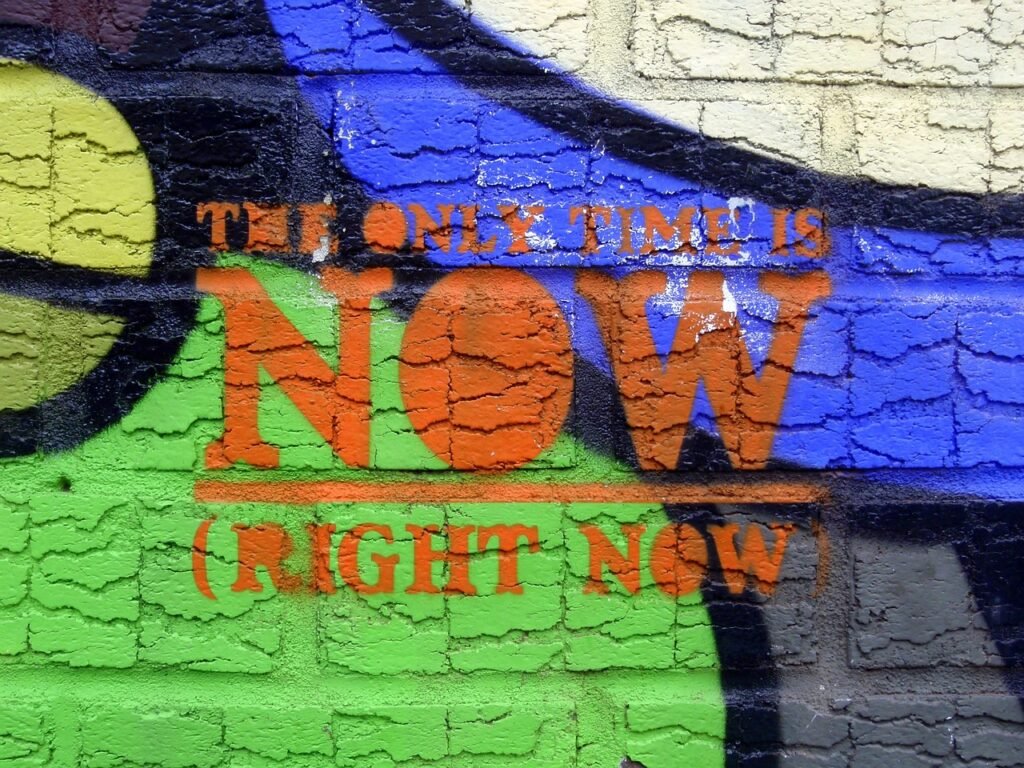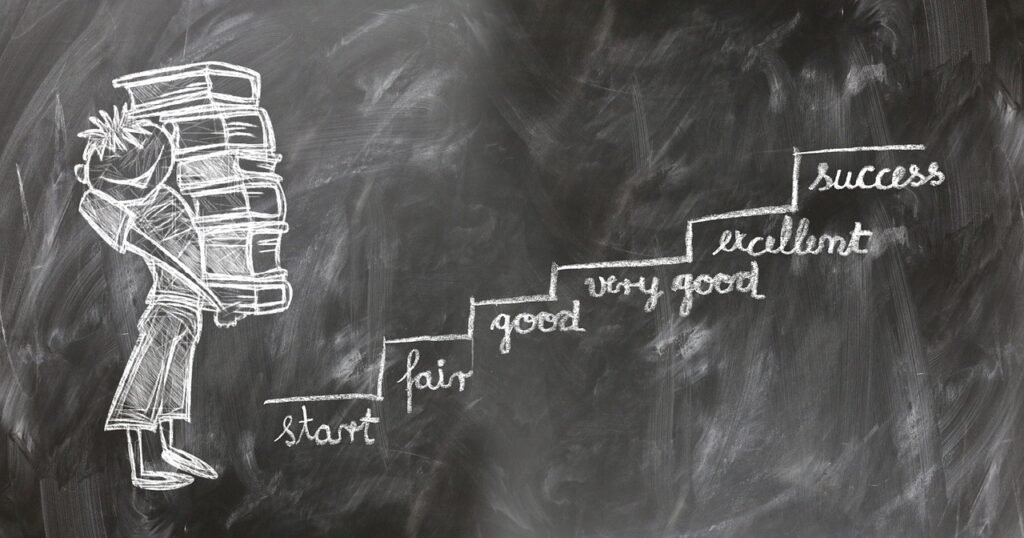
Introduction
Starting a journey of self improvement can be both exciting and challenging.
One of the most effective ways to navigate this path is through reading.
Books have the power to provide us with knowledge, insights, and inspiration that can significantly contribute to our personal growth.
With the right books, you can gain new perspectives, learn valuable life skills, and find the motivation to overcome obstacles.
In the present speedy world, it’s easy to get caught up in the daily grind and lose sight of our personal development.
However, taking the time to invest in yourself is crucial for long-term happiness and success.
Books on self improvement offer a wealth of wisdom from experts and thinkers who have dedicated their lives to understanding the complexities of human behavior and potential.
Whether you’re looking to boost your productivity, build better habits, or simply find more meaning in your everyday life, the right book can be a game-changer.
The seven books we’ve selected cover a range of topics, each offering unique strategies and tools to help you grow.
Imagine being able to change your mindset to embrace challenges instead of fearing them.
Picture yourself breaking free from old habits and forming new, positive routines that propel you forward.
Consider the impact of learning to communicate more effectively, or finding purpose even in difficult times.
These are just a few of the transformations that can come from immersing yourself in the right literature.
Reading for self improvement is not just about acquiring information; it’s about applying what you learn to your own life.
Each book on our list encourages you to take actionable steps towards bettering yourself.
As you dive into these books, you’ll discover practical advice, real-world examples, and inspiring stories that can help you unlock your full potential.
Are you ready to take the next step in your self improvement journey?
Let’s explore the books that can guide you towards becoming the best version of yourself.
‘The Power of Now’ by Eckhart Tolle

Eckhart Tolle’s ‘The Power of Now’ is a life-changing read that emphasizes the significance of living fully in the present moment.
Tolle artfully guides readers on a journey to achieving mental clarity and inner peace by focusing on the now.
Instead of being bogged down by past regrets or future worries, this book teaches you to center your awareness on the current moment, allowing you to experience life more vividly and joyfully.
Tolle provides practical techniques and exercises to help you shift your consciousness and break free from the cycle of incessant thinking.
One of the book’s core messages is that many of our troubles stem from our minds being trapped in either the past or the future.
By anchoring ourselves in the present, we can experience a profound sense of liberation and happiness.
What sets ‘The Power of Now’ apart is its ability to blend spiritual wisdom with practical advice.
Tolle draws from various philosophical and spiritual traditions to offer a universal approach to personal growth.
His insights are both profound and accessible, making complex concepts easy to understand and apply.
Readers have praised the book for its ability to bring a sense of calm and perspective into their lives.
Tolle’s words encourage you to look beyond the surface and connect with a deeper sense of self.
Whether you’re new to the idea of mindfulness or looking to deepen your practice, ‘The Power of Now’ provides invaluable guidance.
In essence, this book is a call to awaken to the present moment and discover the richness it holds.
Through Tolle’s teachings, you’ll learn to let go of mental clutter and embrace a more conscious and fulfilling way of living.
‘Atomic Habits’ by James Clear

James Clear’s ‘Atomic Habits’ dives into the science of habits and offers a blueprint for making small changes that can lead to significant results.
The central idea is that by focusing on tiny, incremental improvements, you can create a system that supports long-term growth and success.
Clear emphasizes that habits are the compound interest of self improvement—small changes accumulate over time, leading to remarkable transformations.
Clear breaks down the process of habit formation into four simple steps: cue, craving, response, and reward.
By understanding these components, you can design your environment and routines to encourage positive habits while discouraging negative ones.
The book is packed with actionable advice, from setting up “habit stacking” techniques to creating effective implementation intentions.
One of the standout features of ‘Atomic Habits’ is its practicality. Clear doesn’t just offer theories; he provides concrete strategies that you can apply immediately.
For example, he introduces the concept of the “Two-Minute Rule,” which suggests starting new habits with actions that take less than two minutes to complete.
This approach makes it easier to overcome procrastination and build momentum.
Another key insight from Clear is the idea of focusing on systems rather than goals.
While goals are important for setting direction, systems are what drive progress.
By refining your daily routines and making small, consistent changes, you can achieve significant personal and professional growth.
Readers have found ‘Atomic Habits’ to be an invaluable resource for understanding how habits work and how to change them effectively.
Clear’s writing is engaging and relatable, filled with real-world examples and research-backed insights.
Whether you’re looking to improve your health, boost your productivity, or develop new skills, ‘Atomic Habits’ offers the tools you need to create lasting change.
‘Mindset: The New Psychology of Success’ by Carol S. Dweck

In ‘Mindset: The New Psychology of Success,’ Carol S. Dweck delves into the powerful impact of our beliefs about our abilities. Dweck introduces the concepts of the fixed mindset and the growth mindset.
A fixed mindset is the belief that abilities and intelligence are static traits that cannot be changed, while a growth mindset is the understanding that abilities can be developed through effort and learning.
Dweck’s research highlights how these mindsets influence every aspect of our lives, from education to business to relationships.
With a fixed mindset, individuals are more likely to shy away from challenges, give up easily, and feel threatened by the success of others.
On the other hand, those with a growth mindset are more resilient, persistent, and open to learning from their mistakes.
One of the standout features of the book is its practical approach to shifting from a fixed to a growth mindset.
Dweck provides actionable strategies to help readers cultivate a growth mindset in themselves and others.
For instance, she emphasizes the importance of praising effort rather than inherent talent.
By recognizing and valuing hard work and perseverance, we can foster a love of learning and a resilience that is essential for long-term success.
Dweck’s writing is engaging and filled with real-life examples and case studies that illustrate the profound effects of mindset.
Whether you’re a student, a teacher, a manager, or simply someone looking to improve your personal life, the insights offered in this book are invaluable.
Dweck empowers readers to rethink their approach to challenges and setbacks, transforming them into opportunities for growth and development.
‘The 7 Habits of Highly Effective People’ by Stephen R. Covey

‘The 7 Habits of Highly Effective People’ by Stephen R. Covey stands as a cornerstone in the world of self improvement.
Covey introduces seven habits that, when practiced consistently, can lead to exceptional personal and professional effectiveness.
What sets this book apart is its focus on principles that transcend time and culture, making its lessons universally applicable.
The first three habits—Be Proactive, Begin with the End in Mind, and Put First Things First—are about mastering yourself.
Covey emphasizes the importance of taking responsibility for your actions and decisions, envisioning your future goals, and prioritizing tasks that align with those goals.
These habits lay the foundation for personal independence and proactive living.
The next three habits—Think Win-Win, Seek First to Understand, Then to Be Understood, and Synergize—shift the focus to your interactions with others.
Covey underscores the value of mutual benefit, empathetic communication, and effective teamwork.
By practicing these habits, you can build stronger, more collaborative relationships both personally and professionally.
The seventh habit, Sharpen the Saw, is all about self-renewal and continuous improvement.
Covey highlights the importance of maintaining balance in your life by regularly nurturing your physical, mental, emotional, and spiritual well-being.
This habit ensures that you stay energized and ready to tackle new challenges.
Covey’s approach is both practical and deeply philosophical.
He weaves together anecdotes, case studies, and powerful insights to create a compelling guide for anyone looking to make meaningful changes.
The actionable advice in ‘The 7 Habits of Highly Effective People’ encourages readers to live with integrity, strive for excellence, and build lasting legacies.
‘Daring Greatly’ by Brené Brown

Brené Brown’s ‘Daring Greatly’ takes a deep dive into the concept of vulnerability and how it shapes our lives.
Contrary to popular belief, Brown argues that vulnerability is not a sign of weakness but a measure of courage.
This book sheds light on how embracing our imperfections and uncertainties can lead to stronger connections, creativity, and resilience.
Brown’s research reveals that vulnerability is at the core of all meaningful human experiences.
She explains that by allowing ourselves to be vulnerable, we open the door to love, belonging, joy, and innovation.
The book challenges us to step out of our comfort zones and engage with life wholeheartedly, even when it feels risky.
One of the standout features of ‘Daring Greatly’ is Brown’s ability to mix academic research with relatable storytelling.
She shares personal anecdotes and real-life examples to illustrate how vulnerability can transform our relationships and careers.
Her writing is both engaging and insightful, making complex ideas easy to grasp and apply.
Brown also tackles the cultural myths that discourage vulnerability, such as the belief that we must always be strong and self-sufficient.
She encourages readers to let go of these damaging notions and instead embrace their authentic selves.
By doing so, we can build deeper, more authentic connections with others.
Another key aspect of the book is its focus on the power of empathy and compassion.
Brown emphasizes that vulnerability is a two-way street; when we share our struggles, we invite others to do the same.
This mutual openness fosters a sense of community and shared humanity, helping us navigate life’s challenges together.
Overall, ‘Daring Greatly’ is a powerful call to redefine how we view vulnerability and courage.
Through Brown’s guidance, you’ll learn to approach life with more openness, authenticity, and heart.
‘Man’s Search for Meaning’ by Viktor E. Frankl

Viktor E. Frankl’s ‘Man’s Search for Meaning’ is a profound examination of how finding purpose can help us endure even the most difficult circumstances.
Drawing from his harrowing experiences as a Holocaust survivor, Frankl introduces his theory of logotherapy, which posits that the quest for meaning is the driving force in human life.
Unlike other forms of therapy that focus on pleasure or power, logotherapy emphasizes the importance of finding a deeper sense of purpose.
Frankl’s insights are rooted in his belief that even in the face of unimaginable suffering, life holds potential meaning under any conditions.
He illustrates how individuals who managed to find a sense of purpose were more resilient and better equipped to cope with the horrors of concentration camps.
His narrative is both deeply moving and intellectually stimulating, offering a unique blend of personal memoir and psychological theory.
One of the book’s most impactful messages is that we cannot always control our circumstances, but we can choose our attitude towards them.
Frankl shares powerful anecdotes of fellow prisoners who found meaning through acts of kindness, spiritual reflection, or a commitment to a future goal.
These stories underscore the human capacity for resilience and the life-changing power of a purposeful life.
‘Man’s Search for Meaning’ challenges readers to reflect on their own lives and consider what gives them a sense of purpose.
Frankl argues that meaning can be found in various aspects of life, from work and relationships to overcoming suffering.
His ideas encourage us to look beyond ourselves and contribute to something greater, fostering a sense of fulfillment and inner strength.
Frankl’s writing is both compassionate and insightful, offering a beacon of hope and a call to discover our own paths to meaning.
His work remains a timeless reminder that even in the darkest moments, we have the power to find purpose and live with dignity.
‘How to Win Friends and Influence People’ by Dale Carnegie

Dale Carnegie’s ‘How to Win Friends and Influence People’ is a masterclass in human relations.
Carnegie lays out timeless principles for effective communication, making others feel valued, and building genuine connections.
His advice is straightforward yet powerful: show genuine interest in others, remember and use people’s names, and be a good listener.
One of Carnegie’s key teachings is to avoid criticizing, condemning, or complaining.
Instead, he encourages giving honest and sincere appreciation.
This approach fosters a positive atmosphere and motivates others to be their best.
By focusing on what people are doing right, you can inspire them to continue those behaviors.
Another essential lesson from the book is the importance of seeing things from the other person’s perspective.
Carnegie argues that understanding others’ viewpoints can help you navigate social situations more effectively and find common ground.
This skill is particularly useful in resolving conflicts and persuading others.
Carnegie also emphasizes the power of encouragement.
He suggests that by highlighting people’s strengths and expressing confidence in their abilities, you can help them reach their full potential.
This not only strengthens relationships but also builds a supportive network where everyone thrives.
The book is filled with practical tips and real-life examples, making it easy to apply Carnegie’s principles in your daily interactions.
Whether you’re looking to improve your professional relationships, make new friends, or simply become a more likable person, ‘How to Win Friends and Influence People’ offers invaluable insights.
Carnegie’s wisdom has stood the test of time, proving that kindness, empathy, and genuine interest in others are the keys to successful relationships.
Conclusion

The journey of self improvement is a rewarding and ongoing process.
The books we’ve highlighted offer a variety of perspectives and strategies to help you navigate your personal growth journey.
Each one provides practical tools and insights that can make a significant impact on your life.
From understanding the power of the present moment to mastering effective habits, adopting a growth mindset, building meaningful relationships, and finding purpose, these books cover a wide array of essential topics.
Reading is a powerful tool for transformation.
It allows you to learn from the experiences and wisdom of others, providing guidance and inspiration for your own path.
As you read these books, take the time to reflect on their messages and think about how you can apply their lessons to your own life.
Personal growth is not a destination but a continuous journey of learning, adapting, and evolving.
Don’t rush through these books. Instead, savor the insights and implement the actionable advice at your own pace.
Whether you’re seeking to enhance your productivity, foster better relationships, or simply understand yourself better, these books can serve as your companions and mentors.
As you embark on this journey, remember that every small step you take brings you closer to your goals.
Embrace the process, stay curious, and keep growing.
With dedication and the right resources, you can unlock your full potential and live a more fulfilling life.
